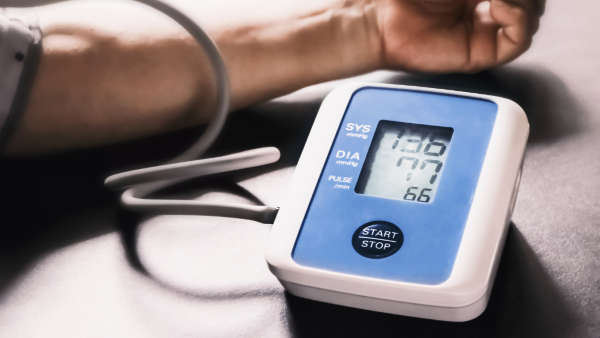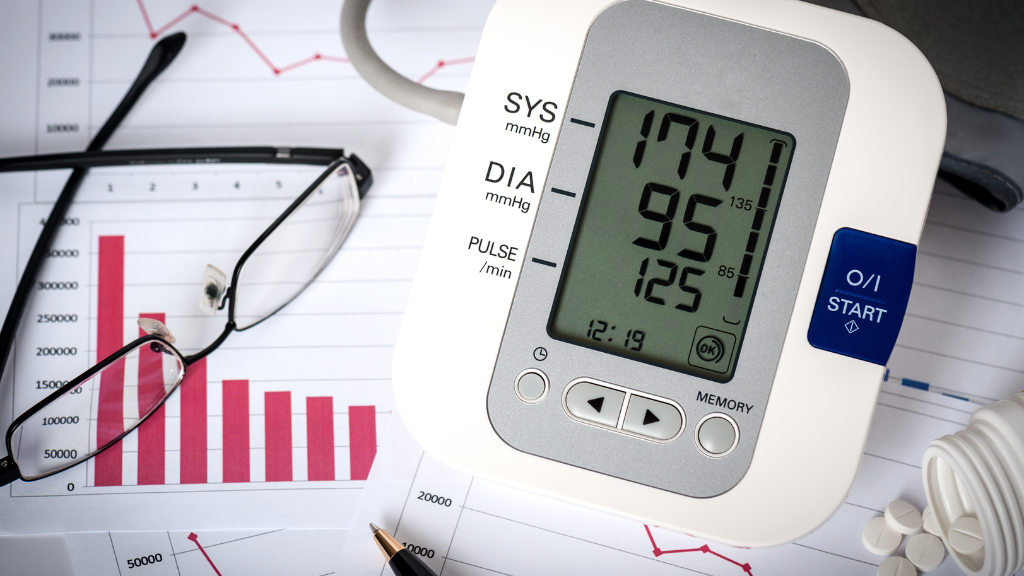High blood pressure and heart disease are two prevalent conditions in the UK. With more than 7.6 million people living with a heart or circulatory disease in the UK, knowing the facts is important. We cover some important facts that you may not know about heart disease and high blood pressure.
What are heart disease and high blood pressure?
Heart disease

Heart disease is an umbrella term covering several conditions affecting the heart. Conditions include irregular heartbeats, heart muscle disease, heart valve disease, congenital heart defects, and coronary heart disease.
Some heart disease conditions, such as coronary heart disease and heart valve disease, can be prevented or treated through a healthy lifestyle. Other heart conditions, such as congenital heart defects, occur at birth.
Each heart disease condition may display varying symptoms. However, some common symptoms exist between different heart disease conditions. Some signs or symptoms include:
- Chest pain or tightness/discomfort (angina)
- Shortness of breath
- Racing or slow heartbeat
- Light-headedness or fainting
- Swollen feet or ankles
Chest pain and shortness are the most severe symptoms. Anyone displaying these symptoms should seek medical care as soon as possible.
Heart disease conditions
- Irregular heartbeat – an irregular heartbeat (or arrhythmia) is where the heart rhythm is too fast, slow, or irregular. This is because the electrical impulses that coordinate our heart’s rhythm are not working correctly.
- Heart muscle disease – heart muscle disease (or cardiomyopathy) is where the lining of the heart chambers becomes stiff, thick, or stretched. This affects the heart’s ability to pump blood around the body efficiently.
- Heart valve disease – heart valve disease results from one or more heart valves not working due to damage or disease. This affects blood flow through the heart and oxygen distribution throughout the body.
- Congenital heart disease – congenital heart disease covers a range of birth defects affecting how the heart works. This can result from several causes, including rubella, the mother taking certain medications during pregnancy (such as statins), Down syndrome, and poorly controlled type 1 or type 2 diabetes.
- Coronary heart disease – coronary heart disease results from the coronary arteries building up with fatty deposits that gradually restrict blood flow. As a result, oxygen-rich blood struggles to reach the heart from the kidney. Insufficient oxygen results in shortness of breath.
High blood pressure

Unlike heart disease, which is a condition, high blood pressure is a significant risk factor for developing heart disease. High blood pressure (or hypertension) is where blood pressure levels are permanently or frequently more elevated than the considered safe levels.
Blood pressure is measured using two numbers, systolic pressure (or the high number) and diastolic pressure (or the low number). Systolic pressure is how strong your heart pumps blood out, while diastolic pressure is the pressure inside arteries between heartbeats.
The systolic and diastolic pressure are recorded in mmHg (or millimetres of mercury). The NHS recommends healthy blood pressure between 90 to 120mmHg systolic and 60 to 80mmHg diastolic.
High blood pressure is considered anything over 140/90mmHg. It is estimated that around 1 in 4 adults have high blood pressure in the UK. This usually goes unnoticed as high blood pressure doesn’t display any symptoms. This increases the risk of heart attack and stroke if left untreated.
You can easily check your blood pressure at home using a blood pressure monitor. Most blood pressure monitors also provide a heart rate reading. Heart rate is the number of times your heart beats per minute. A healthy heart rate should be between 60 and 100.
Facts on heart disease

Coronary heart disease is the most common heart condition. It is also the most common cause of heart attacks, resulting in more deaths than any other heart disease. Source: BHF.
Factors that increase the risk of developing heart disease include smoking, excessive drinking, lack of exercise, and poor diet. Check out ways you can keep active to reduce the risk of developing heart disease.
Smoking causes 1 in 4 heart disease deaths. Source: CDC.
In the UK, heart disease is the cause of 160,000 deaths each year. An estimated 7.6 million people live with heart disease in the UK. Also, 1.4 million people have survived a heart attack. Source: BHF.
Blood pressure naturally increases as we age due to arteries stiffening. It’s estimated that more than half of over 65s have high blood pressure, compared to just 5% of 16–24-year-olds. Source: Blood Pressure UK.
Arteries blocked by fatty deposits for more than 30 minutes can lead to part of the heart muscle corroding or dying (a heart attack). If someone survives a heart attack, the dead cells are replaced with scar tissue that doesn’t support heart functions.
Both diabetes and high cholesterol can cause heart disease. High cholesterol results in blood vessels narrowing with fatty deposits that increase the risk of blood clots. Diabetes and high blood sugar levels can damage blood vessels.
An adult should do around 150 minutes of moderate activity per week to minimise the risk of developing heart disease. Activities, such as brisk walking or jogging, help reduce the risk. Maintaining a healthy weight also minimises the risk of developing heart disease.
Drinking unhealthy levels of alcohol increases blood pressure. Alcohol results in higher renin hormones in blood levels. As a result, blood vessels constrict, leading to higher blood pressure. Heavy and binge alcohol drinking significantly increases the risk of heart disease.
Some research has found that chewing an aspirin tablet during a heart attack can help break up blood clots restricting blood to the heart. This can help save some heart muscle or cells from dying during a heart attack. Chewing an aspirin works much faster than swallowing. Source: Harvard Medical.
Facts on high blood pressure

Men up to the age of 65 are more likely to have high blood pressure than females. This swaps to women over 65 being more likely to have high blood pressure. Source: Blood Pressure UK.
Blood pressure varies from person to person, with not everyone having the same blood pressure. Around 14 million people in the UK have high blood pressure. Source: BHF.
Measuring blood pressure on both arms can indicate a significant difference in readings. Research has found that measuring blood pressure in both arms can predict future health risks. High blood pressure can also be a sign of serious underlying health problems. Source: BHF.
In 90% of cases, there is no underlying cause of high blood pressure. As there are no symptoms, most people will be unaware that they have high blood pressure. For this reason, high blood pressure is often referred to as a ‘silent killer’. Source: NHS Inform.
Losing excessive weight, switching to a low-salt diet, and making healthy lifestyle changes help decrease the risk of high blood pressure. Managing stress and getting sufficient sleep can also help reduce high blood pressure.
Those with white coat hypertension (where blood pressure levels increase in medical settings) may be at higher risk of developing sustained high blood pressure. Source: Rush.
After poor diet and smoking, high blood pressure is the third most significant disease risk factor. Source: Blood Pressure UK. Learn more about how you can eat healthy for a healthy heart.
Recent studies have established a link between high blood pressure and an increased risk of developing dementia. This is particularly the case for high blood pressure during midlife of 44 to 66. Source: CDC.
Heart disease and high blood pressure are two prevalent conditions. Awareness of the facts allows us to make better, more informed choices for our diet and lifestyle. Making changes can help reduce the risk or improve the quality of life for those with such conditions.

